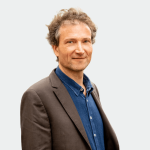
« Nous parlons de la transition verte, nous parlons de la transition numérique. Nous devrions parler de la transition sécuritaire ». Observateur lucide de l’état du monde et de l’Europe, Josep Borrell, le Haut Représentant de l’UE pour les affaires étrangères, nommait tout récemment ainsi la « troisième transition pour l’Union européenne », à l’œuvre selon lui. L’expression repose sur une notion large de la sécurité, entendue au sens militaire, économique, énergétique, technologique et informationnelle. La « transition sécuritaire » traduit une même direction donnée à différentes politiques publiques pour doter l’UE d’outils de défense et de riposte vis-à-vis des autres puissances dans le monde et face à des menaces nouvelles. Même la politique d’élargissement, dont la présidence espagnole fera débattre les Vingt-Sept, est désormais comprise dans ce mouvement afin de ne plus laisser des zones grises issues de l’ex-empire soviétique dégénérer en potentielles menaces pour l’UE. En un mot, d’un projet de paix, l’Europe devient un projet de puissance, sans renoncer au premier mais au contraire pour le consolider.
Dans son acception la plus évidente, la transition sécuritaire s’opère d’abord par une orientation à la hausse des budgets de défense, malgré les nécessités de désendettement public. Le soutien urgent en munitions à la contre-offensive ukrainienne, plus largement, la menace d’une puissance nucléaire instable et imprévisible à nos portes, que représente la Russie aujourd’hui, et l’évolution des priorités stratégiques américaines conduisent nombre d’Etats de l’Union à augmenter leurs propres dépenses militaires. Le sommet de l’Otan, les 11 et 12 juillet prochains à Vilnius, sera l’occasion d’en mesurer l’ampleur.
La stratégie européenne de sécurité économique, que vient de présenter la Commission von der Leyen, s’inscrit aussi pleinement dans cette transition du 3ème type. Elle s’appuie sur l’arsenal d’instruments nouvellement créés, tel le filtrage d’investissements étrangers entre autres, ou en cours d’adoption, comme le règlement anti-coercition ou celui sur les matières premières critiques, qui doivent réduire les risques d’une sur-dépendance, en particulier à l’égard de Pékin.
La guerre en Ukraine a d’emblée révélé une autre dépendance européenne, celle au gaz russe, dont nous sommes rapidement sortis. Mais, malgré des progrès de diversification et d’interconnexion, la sécurité d’approvisionnement gazière du continent reste à pérenniser par une nouvelle baisse de la demande de cette énergie fossile, comme le préconise notre centre énergie.
De manière générale, un arbitrage s’opère entre une meilleure sécurité et un moindre prix, en faveur d’une meilleure résilience des chaînes de valeur et non plus la seule recherche du moindre coût de production. La transition sécuritaire conduit ainsi à un ajustement des prix. Elle entraîne au-delà une mutation du marché intérieur, qui va devoir pour l’avenir protéger son ouverture.
Nos publications et événements, présentés dans cette infolettre d’été, décrivent et analysent dans différents domaines cette transition sécuritaire, devenue un nouveau vecteur d’intégration européenne. Le mouvement ne fait sans doute que commencer. Il imprimera plus encore nos travaux.
À l’échelle plus modeste de notre think tank débute aussi une transition, humaine celle-là. A compter du 1er septembre, je quitterai mes fonctions de directeur de l’Institut Jacques Delors, occupées depuis six ans, pour m’installer à Londres, d’où je travaillerai pour notre nouveau Centre Grande Europe, qui porte notamment sur la Communauté politique européenne. Ma successeur Sylvie Matelly, venue de l’IRIS, dirigera ensuite notre Institut, toujours sous la présidence d’Enrico Letta. Son expertise reconnue en matière de géo-économie et de défense sera particulièrement bienvenue pour « penser l’Europe », selon notre devise, dans cette triple transition à l’aune des incessants bouleversements du monde.




